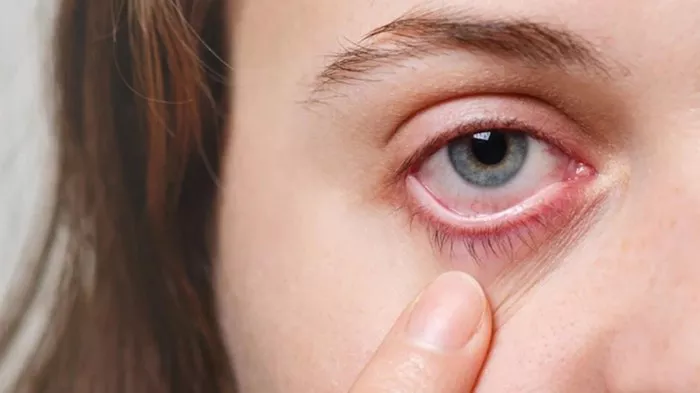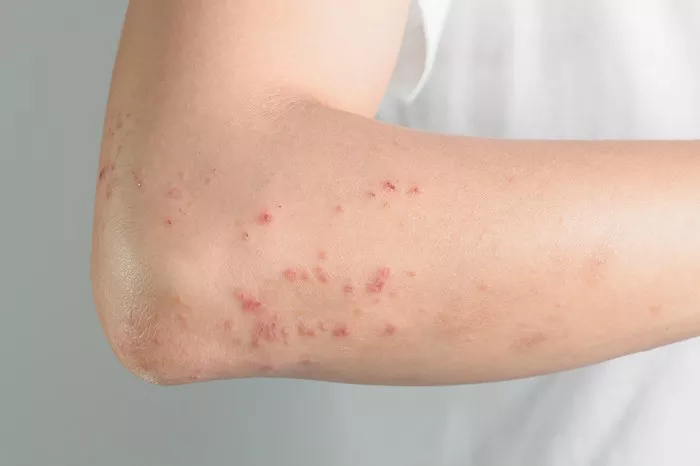Eczema on the eyelids can be uncomfortable, unsightly, and frustrating. The skin on the eyelids is delicate, making it prone to irritation and more challenging to treat. This article will guide you through understanding eczema on the eyelids, what causes it, and the steps you can take to manage and stop it effectively.
Understanding Eyelid Eczema
Eczema, also known as atopic dermatitis, is a skin condition that causes inflammation, redness, and itching. When it occurs on the eyelids, it can make the skin dry, flaky, and irritated. In some cases, the skin may even crack or develop tiny blisters.
Eyelid eczema can affect one or both eyelids and might come and go in flare-ups. It is essential to identify the underlying causes and triggers to manage the condition effectively.
Causes of Eyelid Eczema
Identifying what triggers your eczema is a crucial step in treating it. Here are some common causes:
Allergic reactions: Substances like makeup, skincare products, or even shampoos can cause allergic reactions that lead to eczema.
Environmental factors: Pollen, dust, and mold can trigger eczema, especially in individuals prone to allergies.
Irritants: Harsh soaps, detergents, or even sweat can irritate the sensitive skin around the eyes.
Stress: Emotional stress can worsen eczema, including on the eyelids.
Underlying skin conditions: Conditions like seborrheic dermatitis or contact dermatitis can also contribute to eyelid eczema.
Signs and Symptoms to Watch For
Eyelid eczema can manifest in various ways. Here are the most common symptoms:
- Red, swollen, or irritated eyelids
- Dry, flaky skin around the eyes
- Itching or a burning sensation
- Thickened or leathery skin from repeated scratching
- Small blisters that may ooze or crust over
If you notice these symptoms, it’s essential to start managing them as soon as possible to prevent further complications.
How to Manage Eyelid Eczema
Use gentle skincare products
Choose fragrance-free and hypoallergenic skincare products. Look for cleansers and moisturizers specifically formulated for sensitive skin. Avoid harsh chemicals, alcohol, and synthetic fragrances that can irritate your eyelids.
Keep the skin hydrated
Moisturizing is key to managing eczema. Use a gentle, non-comedogenic moisturizer to keep your eyelids hydrated. Apply it immediately after washing your face to lock in moisture.
Avoid triggers
Identify what might be triggering your eczema and try to avoid it. If you suspect an allergy to a specific product, stop using it and consult a dermatologist for testing.
Wash hands before touching your face
Always wash your hands thoroughly before touching your eyelids. This simple habit can reduce the risk of transferring irritants or allergens to the delicate skin around your eyes.
Use cold compresses
Applying a cold compress can help soothe itching and reduce inflammation. Wrap an ice pack or a clean washcloth soaked in cold water in a soft cloth and gently place it over your closed eyes.
Avoid rubbing or scratching
Although it can be tempting, avoid scratching or rubbing your eyelids. This can worsen irritation and lead to infection.
Opt for prescription treatments if needed
If over-the-counter remedies do not provide relief, consult a dermatologist. They may prescribe mild topical corticosteroids, calcineurin inhibitors, or other treatments specifically formulated for sensitive skin.
Lifestyle Changes to Prevent Eyelid Eczema
Adopt a balanced diet
Eating a healthy, balanced diet can improve your skin’s overall health. Include foods rich in vitamins, minerals, and omega-3 fatty acids. These nutrients can reduce inflammation and support skin repair.
Manage stress
Stress can trigger or worsen eczema. Practice relaxation techniques like yoga, meditation, or deep breathing to keep stress levels in check.
Stay hydrated
Drink plenty of water to keep your skin hydrated from within. Dehydration can make eczema symptoms worse.
Maintain a clean environment
Reduce exposure to dust, pollen, and other environmental triggers by keeping your living space clean. Use air purifiers and wash your bedding regularly to minimize allergens.
When to Seek Professional Help
If your eczema persists or worsens despite trying home remedies and over-the-counter treatments, it’s time to consult a healthcare provider. They can help identify the cause and recommend appropriate treatments.
In some cases, they might suggest patch testing to identify allergens or prescribe stronger medications to manage symptoms.
Preventing Flare-Ups
Prevention is key to managing eczema on the eyelids. Here are some tips to avoid flare-ups:
- Avoid wearing eye makeup during flare-ups.
- Use only clean brushes or sponges for applying makeup.
- Protect your skin from extreme temperatures and harsh weather.
- Avoid wearing contact lenses if they irritate your eyelids.
Conclusion
Eczema on the eyelids can be challenging, but with the right care and attention, you can manage and even prevent it. Start by identifying triggers, using gentle products, and maintaining a healthy lifestyle. If symptoms persist, don’t hesitate to seek professional advice.
Taking small, consistent steps can make a significant difference in stopping eczema on your eyelids and improving your overall skin health.
Related topics:


























